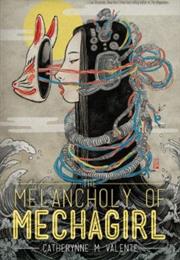

And it's that idea of endings, and the meaning they can convey, that seems to really be the best place to start. ) There's also its structure, which at first brush feels overwhelming, but, like a good mystery should, falls into place at the end-not perfectly, not so that everything is answered, but so that everything, at least, has meaning. (This is a book that includes the line, "'I am a nexus point connecting all possible realities and unrealities,' Severin purrs seductively," and pulls it off with aplomb. Another way in might be through talking about its language, which is sometimes drenched in wit, sometimes full of pain, but always beautiful. It mashes up genres so that you know what you're looking at ("Oh," you might think, "that's a little bit of noir, and that's some space opera, and that's probably art deco") but that knowledge only serves to bring you to a point where you have to start paying way more attention to how the genres interact than how they work on their own. You could start, if you wanted to, with its genre play, because genre makes up such a large a part of how Radiance speaks. It manages to be about a mind-boggling amount of things, and to think and talk about them in innumerable ways.

(Oct.It's hard to know where exactly to begin talking about Radiance. Agent: Howard Morhaim, Howard Morhaim Literary Agency. This celluloid fairy tale about one woman’s life beyond her father’s legacy and the all-seeing eye of the lens will captivate readers with all the drama and wonder that Valente’s strange and wonderful golden age Hollywood demands.

Severin’s tale is told largely through press snippets, film notes, audio transcripts, preproduction meetings, and interviews with the surviving crew. When she doesn’t return from the ill-fated Venus shoot, speculation leads to rumor and conjecture, and the press and hoi polloi are only too happy to fan the flames of gossip. Severin is the outspoken daughter of a famous Hollywood director, but she eschews her father’s fantasy tales, preferring true stories. In an alternate 1944 where interplanetary travel is the norm, a film crew headed by Severin Unck journeys to Venus to investigate the Roanoke-like disappearance of the diving village Adonis. The long-awaited first science fiction novel-though it’s really more of a cosmic fantasy-from Tiptree winner Valente (whose last novel for adults was 2011’s Deathless) is a masterpiece of storytelling, seductive in prose and ambitious in scope.


 0 kommentar(er)
0 kommentar(er)
